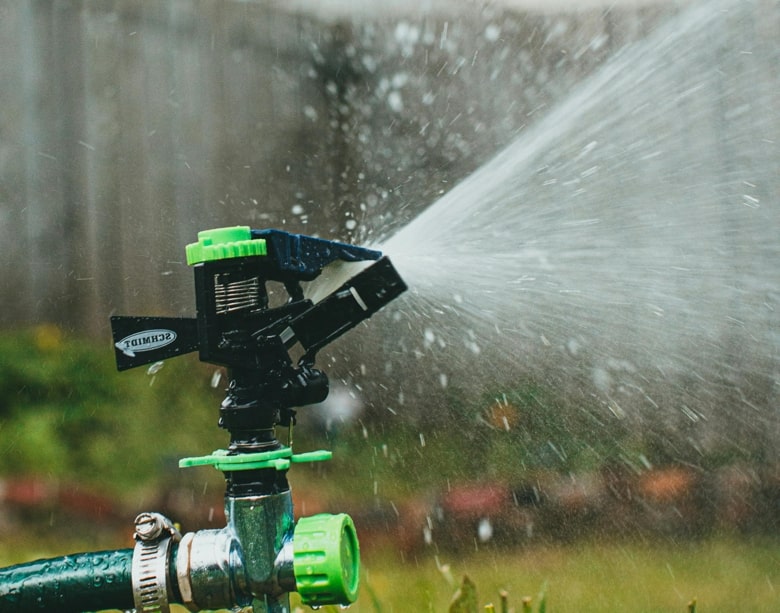Preparing Your Lawn Before Summer Growth
Posted Monday, April 15th, 2024 | 291 views
 As the warmth of summer approaches, ensuring your lawn is prepared can make all the difference in achieving a vibrant and healthy landscape.
As the warmth of summer approaches, ensuring your lawn is prepared can make all the difference in achieving a vibrant and healthy landscape.
In Canada, where the growing seasons can be short, getting an early start on lawn care is great idea for home owners.
This article offers an easy approach to lawn preparation that will help you cultivate a thriving garden and greener lawn.
First Assess Your Lawn’s Current Condition
Evaluate The Soil Health
Before you start any lawn care tasks, it’s important to understand the current state of your soil. Soil testing is a straightforward process that provides valuable information about pH levels and any nutrient deficiencies.
- Conduct a pH test: Most lawns thrive at a pH level between 6.0 and 7.0. If your soil is too acidic or alkaline, it can hinder grass growth.
- Check for nutrient deficiencies: Essential nutrients like nitrogen, phosphorus, and potassium are needed for grass to be healthy.
- Examine soil texture: Clay, sandy, or loamy soils each require different types of care and amendments.
- Look for compaction: Heavy foot traffic can compact soil, making it difficult for roots to grow.
You can obtain the tools and testing kits for your soil at any local hardware store like Rona or Home Depot.
Inspect for Weeds and Thatch
Weeds and thatch can prevent nutrients and moisture from reaching the roots of your grass and can impede proper growth.
- Identify common weeds: Learn to recognize local weed species to effectively target them without harming your grass.
- Measure thatch accumulation: More than a half-inch of thatch can harm your lawn’s health.
- Plan your attack: Decide whether physical removal or chemical treatments are necessary based on the extent of the issue.
Preparing the Ground
Start by Aerating Your Lawn
Aerating your lawn can significantly improve air and water flow to the roots and promote stronger growth.
- Choose the right time: Spring and/or early summer are ideal times for aerating which supports vigorous growth.
- Select an appropriate tool: Use a spike aerator for less compact soils or a plug aerator for heavily used lawns.
- Cover evenly: Ensure that the entire lawn is aerated evenly to avoid patchy growth.
Top-Dress and Overseed
Top-dressing and overseeding are proven to be excellent ways to improve soil quality and fill in bare spots.
- Select the right seed: Choose a grass type that matches your existing lawn and climate conditions.
- Apply a thin layer of compost or soil: This provides a nutrient-rich base for new seeds.
- Overseed evenly: Spread seeds at the manufacturer’s recommended rate to avoid overcrowding.
Enhancing Lawn Health
Fertilize Appropriately
Fertilizing your lawn provides the necessary nutrients for growth, but it’s important to use the right type and the right amount.
- Choose a fertilizer: Select a fertilizer that complements the needs identified in your soil test.
- Follow a schedule: Fertilize at scheduled times in the growing season to maximize effectiveness.
- Use the correct amount: Over-fertilizing can lead to rapid, weak growth and harm your soil.
Introduce an Automatic Sprinkler System
 Integrating an automatic sprinkler system will dramatically improve the health and appearance of your lawn by providing consistent, adequate hydration. It will save you time and ensure that your lawn receives the right amount of water, even during unpredictable weather patterns.
Integrating an automatic sprinkler system will dramatically improve the health and appearance of your lawn by providing consistent, adequate hydration. It will save you time and ensure that your lawn receives the right amount of water, even during unpredictable weather patterns.
Automatic sprinklers reduce water waste and can be customized to suit the specific needs of different lawn areas. You can consider this upgrade as an investment in the long-term beauty and sustainability of your lawn. Learn more about the advantages of automatic sprinkler systems here.
How to Maintain Your Lawn’s Beauty
Regular Mowing
Keeping your grass at an ideal height encourages healthy roots and discourages pests.
- Set the right height: Avoid cutting grass too short, which can stress the plants.
- Keep blades sharp: Dull blades can damage grass, leading to disease and discolouration.
- Mow regularly: Regular mowing encourages grass to grow thick and crowd out weeds.
Monitor Watering and Sun Exposure
Adjust your watering schedule based on rainfall and temperature, and take note of how much sun your lawn gets.
- Water deeply but infrequently: This encourages deeper root growth.
- Adjust for weather: Reduce watering in cool, damp weather and increase during hot, dry periods.
- Understand sun exposure: Some grass types require full sun, while others tolerate shade.
- Water in the morning and evenings: avoid watering your garden and grass during the hottest times of the day.
A Little Preparation Goes a Long Way
Following these simple but effective tips will get your lawn ready for a beautiful and vibrant summer. If you have any questions about lawn care processes or the equipment you need, you can take a quick trip to your local hardware store and ask one of the garden specialists for help too.
